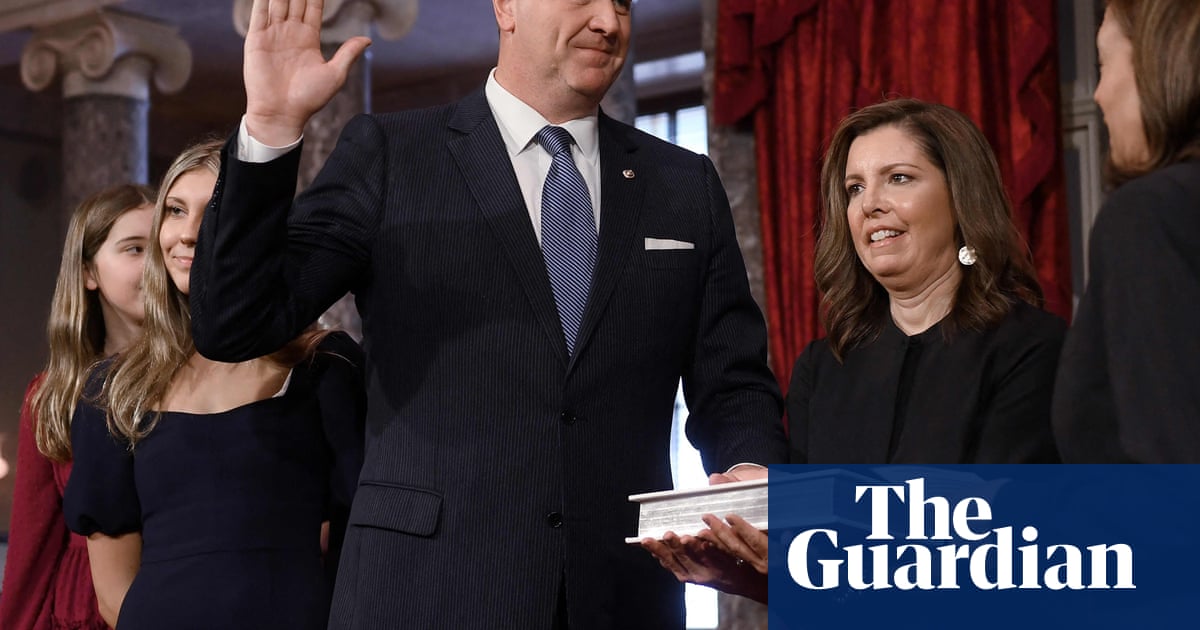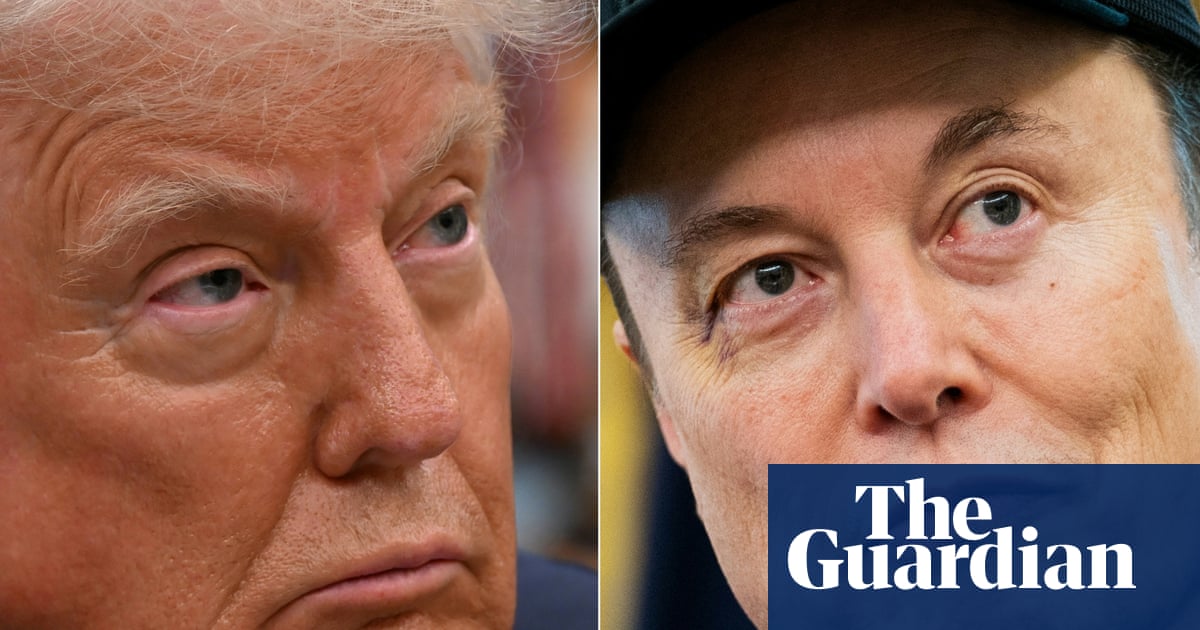While Ukraine just pulled off an audacious and effective attack on Russia’s bomber fleet, Vladimir Putin is slow-walking Donald Trump’s effort to nudge the warring countries toward peace talks and continuing to kill Ukrainian civilians, irritating the American president.
Soon, Trump could have on his desk a sanctions bill that would do grave damage to Russia’s capacity to fund the war by targeting the countries still buying Moscow’s oil and gas, the lifeline of their economy. The measure, co-sponsored by Senators Lindsey Graham (R-S.C.) and Richard Blumenthal (D-Conn.), has amassed a remarkable 82 sponsors and both Senate Majority Leader John Thune and Speaker Mike Johnson this week vocalized their support for confronting Russia.
There may not be again such an opportune moment to squeeze Putin and finally force him to the negotiating table.
There’s only one hold-up: Trump doesn’t seem to want to.
There’s little indication he will publicly green-light Congress to send him the bill, let alone sign it were it to ever reach him, prerequisites for it to clear both chambers. In fact, on Wednesday the president, after speaking to Putin, released a statement previewing Russia’s reprisals for the airfield attack without any denunciation and intimated he’d rather have Putin’s help with Iran than push the Russian strongman toward a ceasefire in Ukraine. By Thursday, Trump wasn't just offering punditry about Moscow's coming counter-attacks, he was portraying more fighting as inevitable and perhaps even useful, likening the two nations to children on a playground better left to fight it out till they each tire.
The gap between GOP lawmakers eager to starve the Russian war machine and a president more interested in, as he says, getting along with Putin in hopes they can do great deals together has never been starker. And it is about to present a test of Republican leaders in Congress: Is there anything on which they will force Trump’s hand?
Probably not, but Putin may be the only person who can force the issue.
The most likely outcome is that Trump will continue to offer his patented “two weeks” to Putin, the war will drag on and GOP lawmakers will defer to the president’s wishes. That’s been the precedent. Putin rebuffs a ceasefire and keeps killing civilians, Trump gets annoyed and the hawks in his party seize the moment to offer the president attaboys in hopes he’s about to turn on Putin. But he never does.
Nobody from the party’s interventionist wing has been as aggressive as Graham, who just returned from a trip to Kyiv and other European capitals. The wily South Carolinian keeps keeping hope alive, swooping in at every moment Trump vents about Putin to offer positive reinforcement. Wednesday night, Graham saw an opening when Trump posted a Marc Thiessen column in The Washington Post, which made the case that Congress could pass the sanctions bill as a warning and then sit on it, not sending it to Trump for his signature.
“It is clear to me that given Putin’s behavior and refusal to be reasonable, the Senate will soon provide President @realDonaldTrump with more tools in his toolbox, and they will not be carrots,” Graham wrote, hopefully.
On Thursday, Graham was at it again, flattering Trump by saying the president is the person who can end the war, even as Trump told reporters in the Oval Office he hadn't yet looked at a bill Graham has repeatedly discussed with him. Then, as if to dispel any doubt that he expected Congress to follow his lead, Trump said of GOP lawmakers: "They're waiting for me to decide on what to do."
Yet Congress doesn’t even have to pass the bill: A single, overwhelming vote in just the Senate would deliver a resounding message to Moscow that Trump wields the proverbial sword over their neck.
Thune this week said publicly, and in private to his GOP colleagues, that he’s willing to bring Graham’s bill to the floor before the July 4 recess. The White House hasn’t offered encouragement, I’m told by people close to the discussions, but has said they won’t stand in the way if the Senate wants to pursue the measure. It was a “‘If you guys feel you need to do it…’” message, per Republicans.
Of course, neither West Wing aides nor Republican lawmakers know what Trump will say on any given day about Putin.
There is, however, real sentiment among Senate Republicans in favor of passing the measure, for leverage purposes if nothing else.
“We should just do it,” Senator Kevin Cramer (R-N.D.), a staunch pro-Trump lawmaker, told me. “Donald Trump can stop it or slow it over there [in the House]. But we can make our point, offer the muscle of the Senate so Donald Trump has the ability to say to Putin, ‘Don't make me do this.’”
Another Trump ally in the Senate said that, while Thune would prefer to bring up a bill with Trump’s blessing, “there is a scenario in which the Senate moves first” to at least send a statement.
Even Blumenthal has gotten in on the bit, spelling out how this could unfold with his Republican colleagues.
“The White House can stay neutral,” Blumenthal said on MSNBC’s “Morning Joe” this week. “It can stay hands off, and Republicans will stand up to Putin.”
That said, such a scenario presumes that Trump would go along with the act and play his role, without reading the stage directions out loud. Because what’s the point of handing Trump a loaded weapon if he’s only going to put it down, log on to Truth Social and say he never asked for this bill?
Still, some old Republican hands think even Senate passage would echo across the Atlantic and that Thune has his own hand to play with Trump.
“The act of moving it in the Senate would send a real signal,” said former House Speaker Newt Gingrich, who is in touch with Trump and recently helped steer the president away from his tax hike temptation.
Gingrich, no stranger to legislative sorcery, said Thune could simply plead that it’s the will of his body and bring up the measure.
“When you have over 80 co-sponsors, you have an ability to say, ‘Gee, I don't know how we can stop this,’” said the former speaker.
Echoing Cramer, Gingrich said Trump should realize “there are several steps between initial Senate passage and a bill on desk,” but that even one chamber casting an overwhelming vote would convey “a signal to Putin that things may get dramatically worse.”
The fundamental challenge for the hawks is that Trump is similarly annoyed at both Ukraine and Russia for prolonging the war and is unwilling to single Putin out. Pressed in the Oval Office Thursday about the moment he'd levy sanctions on Russia, Trump said "when I see the moment where it's not going to stop...we'll be very, very tough and it could be on both countries to be honest, you know — it takes two to tango."
Further, there are still some GOP holdouts in Congress. The Senate Republicans who’ve not co-sponsored the bill are a Who’s Who of non-interventionists and more recent arrivals to the chamber who don’t want to be for anything that Trump may oppose. This opposition wouldn’t prevent passage, but it could prolong debate, particularly if the president is unwilling to offer public support and these lawmakers don’t see any political risk in blocking the measure.
Yet what’s more striking is that any such piece of major foreign policy legislation could command over 80 supporters in a deeply polarized Senate.
There is near-uniform recognition among Democrats of Putin’s malign ways. And most of the Republicans — and certainly Thune — still possess Cold War DNA when it comes to the Russians.
“I'd sure be happy if he did it,” Cramer said of Thune, his longtime friend (they were young GOP executive directors in their respective Dakotas in the 1980s).
Pass one for the Gipper, he urged.
“I’d like to show the world that Ronald Reagan still lives in the heart of us,” said Cramer.

 German (DE)
German (DE)  English (US)
English (US)  Spanish (ES)
Spanish (ES)  French (FR)
French (FR)  Hindi (IN)
Hindi (IN)  Italian (IT)
Italian (IT)  Russian (RU)
Russian (RU) 























Comments